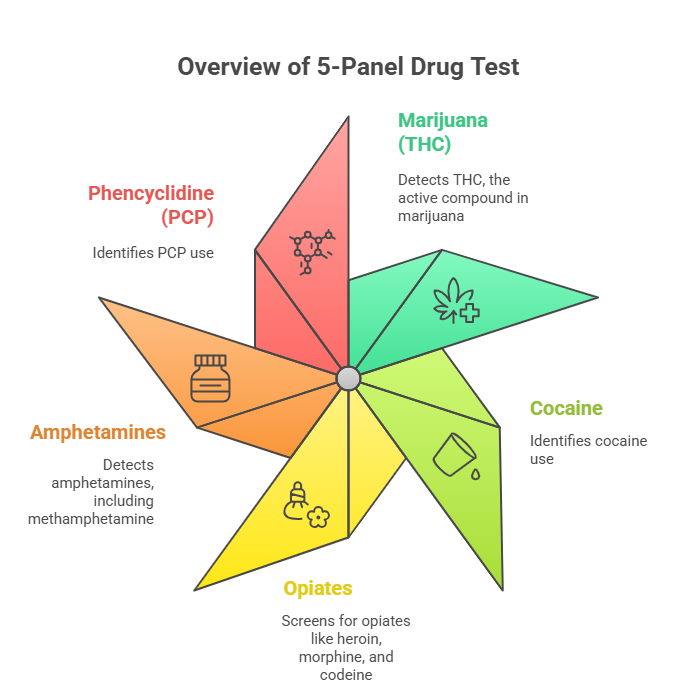Table of Contents
ToggleAs per a recent poll, 52 % of respondents said that they knew at least one colleague who uses drugs like Cannabis/THC (street names: Charas/Gaanja)
In India, conducting background verifications has become a crucial aspect of the hiring process. This practice is now being adopted by industries and job profiles where it was previously non-existent. Its implementation enables employers to prioritize the safety and security of both their employees and the workplace.
Drug testing is a key component of background verification, albeit not as prevalent in India. However, given the detrimental impact drug abuse can have on productivity, safety, and quality of work, employers are increasingly recognizing the need to incorporate it into their screening process.
It should be noted that drug testing is not mandatory under Indian law, and thus, it falls upon employers to determine whether or not to include drug tests as part of their background verification procedures. The founders and HR leadership of companies may have uncertainties regarding certain aspects of drug tests, such as which drug tests to administer, how to conduct them, how employees may respond, and what the policy should be in the event of a failed drug test and evidence of drug use by an employee.
We try to answer some of the questions here.
Which drug test, and how is the drug test conducted?
Typically, the customary approach is to select a drug test panel based on the specific requirements and use case. To minimize ambiguity, it is suggested that beginners opt for a 5-panel drug test, as it encompasses the drugs that are frequently used.
The person being tested is requested to provide a urine sample in a sterile container.
The sample is then identified with the individual’s information and securely sealed.
The sample is dispatched to a laboratory for examination.
At the laboratory, the sample is split into two aliquots for testing.
An immunoassay test is used to screen one aliquot, which is a quick and cost-effective test that can identify the presence of the panel of drugs mentioned above. If the immunoassay test is negative, no further testing is required, and the result is considered negative.
In case the immunoassay test is positive or ambiguous, the second aliquot undergoes confirmatory testing using a more specific and sensitive method such as gas chromatography/mass spectrometry (GC/MS).
If the confirmatory test is positive, the individual is deemed to have tested positive for the drug(s) in question. If the confirmatory test is negative, the individual is deemed to have tested negative for the drug(s) in question
I am still not sure. How will the employee react? What happens if a drug test fails?

Certain questions may not have a definitive response and will hinge on the specific trust, safety, and compliance goals of an organization. For example – who can decide which employee goes through drug screening – the management, the HR team, or another employee? If an employee goes through a drug test, can he or she be subjected to another drug screening test for 6 months?
Eventually, these responses, customized for an organization, must be translated into a policy that is communicated to all current and prospective employees. Ultimately, the policy should be pragmatic and deemed equitable by most employees. If you require assistance in creating a drug screening policy, feel free to contact us at partner@ongrid.in with the subject “Drug testing Policy“. About Us
OnGrid is India’s leading background verification platform which offers 150+ checks and verifications including drug test at the fastest turnaround time! We work with over 3000 organizations and have conducted over 500 million checks and verifications. To know more about the process and commercials, schedule a demo now or simply give us a call at 080 470 94800.
Q1. Is drug testing legal in India for employment purposes?
Yes, drug testing is legal in India. However, it is not mandatory under Indian law. Employers may choose to include it as part of their background verification based on their internal policy, especially to maintain workplace safety and compliance.
Q2. What does a 5-panel drug test typically screen for?
A standard 5-panel drug test screens for the most commonly abused substances:
-
Marijuana (THC)
-
Cocaine
-
Opiates
-
Amphetamines
-
Phencyclidine (PCP)
Q3. How is the drug testing conducted during background verification?
The drug testing process usually involves:
-
Collection of a urine sample from the candidate
-
Secure sealing and labelling of the sample
-
Initial screening via immunoassay test
-
Confirmatory testing using GC/MS if the first result is positive
Q4. Can an employee refuse to take a drug test?
Since drug testing is not legally mandated, employees can technically refuse, but refusal may affect their candidacy or current employment, depending on the company’s internal drug screening policy.
Q5. What happens if a candidate fails a drug test?
If a candidate tests positive and the result is confirmed by a certified laboratory, the employer can take actions based on their internal policy. This may range from disqualification during hiring to disciplinary actions for existing employees.





Leave a Reply